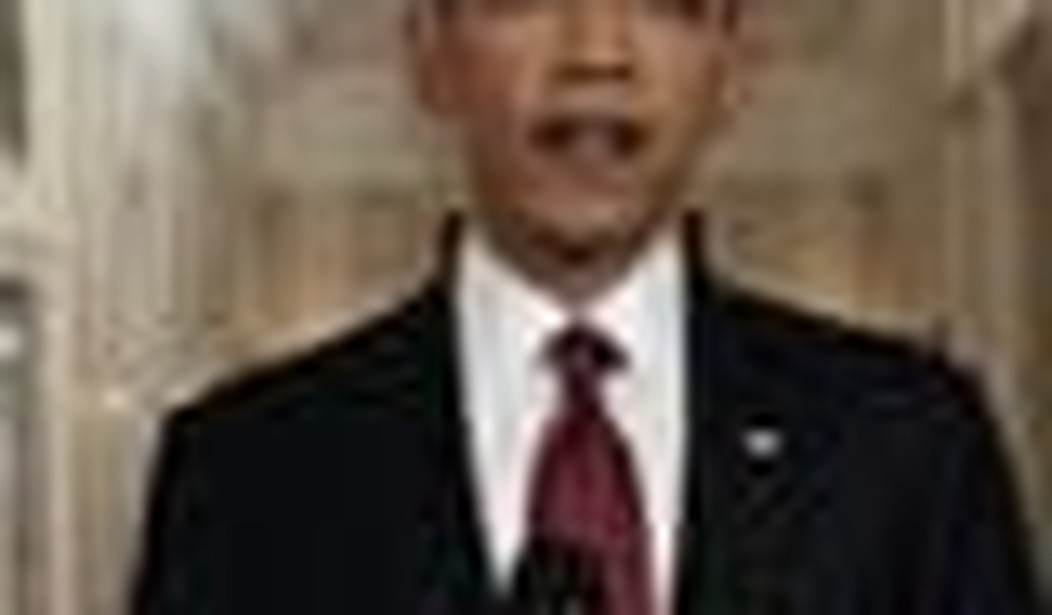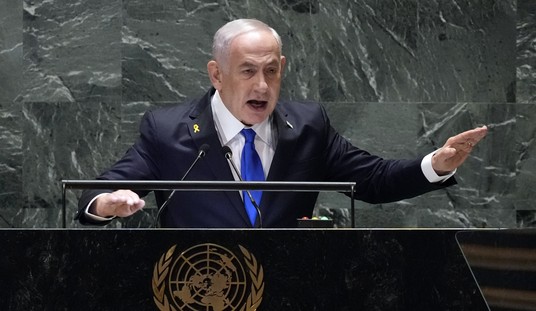Did Pakistan know about the raid that killed Osama bin Laden? Michael Ledeen’s Ouija board conversations with the ghost of James Jesus Angleton, the former head of CIA counterintelligence, are always worth a read. In their last chat, they may have been on to something before anyone else: the notion that higher-ups in Pakistan knew about the U.S. operation to snatch OBL. Why should this matter? The world’s worst terrorist is dead. There’s no need to make hay of a great thing, right?
Well, it matters a lot. It matters because the nature of the operation explains the true nature of Pakistan, which, with its triangulations and nuclear arsenal, has long been a wilderness of mirrors. While American politicians wonder whether the Pakistanis were aware of OBL’s hideout — of course they were — al-Qaeda is currently wondering whether the Pakistanis were aware that SEAL Team 6 was on its way to kill their leader. If destroying the rest of al-Qaeda’s hierarchy is the goal, perhaps that is the more immediate question. Perhaps some in Pakistan knew of the hideout, some knew of the operation, and some knew of both.
There are questions here. What happened from the time we located OBL’s courier and the Abbottabad compound in August 2010 to the night of the raid? Did we not once share this intelligence with someone in Pakistan during these nine months? During the 2008 presidential campaign, Obama stated he would intervene in Pakistan to catch OBL if the Pakistanis did not act. Such a policy required waiting to see whether or not the Pakistanis would act.
We knew Abbottabad was a military town. Pakistan’s prestigious military academy is located just yards away from OBL’s compound. In fact, U.S. forces were stationed there in October 2008 (and possibly another time or two). This remarkable WikiLeaks revelation has been lost on most of the American media. One can only imagine OBL smirking from his balcony, sipping tea while observing joint U.S.-Pakistani military training. He was right under our nose — or, more precisely, we were right under his.
Why would we unnecessarily jeopardize the mission and risk a firefight with the Pakistanis without knowing for certain that we might not have to? What if the Pakistanis thought they were under attack from India? That could have sparked a nuclear exchange between the two rivals. Surely “Black Hawk Down” was not the only bad scenario envisioned during the planning stages of the operation.
Some other questions linger. Does this year’s arrest of Bali bomber Umar Patek, also caught in Abbottabad, have anything to do with anything? What about Pakistan’s arrest and eventual release of CIA agent Raymond Davis in March? For months prior to the raid, CIA operatives had a safe house in Abbottabad to spy on OBL. Who knew of this? And why are we revealing the nature of the intelligence we collected at the compound? As for the raid, what was the nature of the firefight? We were first told it was a 40-minute battle and OBL was the last to be killed. Now we are told the only resistance came from the courier living in the guest house, not OBL’s villa. We were first told OBL had a gun in hand. Now we are told he was “reaching” for a weapon. How does it take that long to reach for a weapon? What happened during the 20-25 minute blackout on the operation’s video stream? Why didn’t we take OBL’s wife with us? Why do at least two of the other three men killed during the raid seem to have been shot in the back of the head?
This suggests an execution. The two men that were shot in the back of the head were OBL’s son and another chap, and the guy shot regular-style was the courier in the guest house who engaged the SEALs with gunfire. Was it that we captured these two men but didn’t have enough room to take them with us due to the downed stealth chopper — so we killed them? Does this mean OBL was executed, as well — as his wife claims? Not that we should trust the word of a mafia wife, but it seems we were never intent on taking OBL alive.
Don’t misunderstand. That’s not a bad thing. It’s just unusual. This is not to second guess or slander the warriors who took this international criminal down. But wouldn’t we prefer to take OBL alive, if we could? That is, of course, unless an arrangement had been made prior to the operation whereby OBL’s death was mandatory.
In many ways, Pakistan is three countries in one. There is the civilian government, the military, and the mysterious intelligence service, the ISI. Each party is suspicious of the other, has divided loyalties within, and collaborates with one against the other — thus murky events like the assassination of Prime Minister Benazir Bhutto. By all accounts, the two most powerful men in the country are Gen. Ashfaq Kayani, head of the Pakistani Army, and Lt. Gen. Ahmed Pasha, head of the ISI. President Zardari is subordinate to the men with the guns.
It stands to reason that at least one of these men, probably two, knew of OBL’s hideout. And at least one, probably two, knew of the U.S. operation to kill OBL.
GlobalPost is now reporting just that. Lt. Gen. Pasha met with CIA Director Panetta on April 11 and Gen. David Petraeus, who is set to take over the CIA, met with Gen. Kayani on April 25. Abbottabad residents are saying the Pakistani military secured and cordoned off the site on the night of the raid, visiting the homes of civilians and asking them to turn their lights off. “Pakistani military officials said it was impossible for U.S. helicopters to fly to the compound without the knowledge of the Pakistani military,” the report states.
This makes too much sense. Yes, Pakistan was protecting OBL — as they have been, in some capacity, since the 1990s. But when we discovered OBL’s location — thank you Guantanamo, rendition, black sites, waterboarding, and wiretapping –– we probably, and wisely, confronted the Pakistanis about it in secret, just as President Kennedy confronted the Russians about their missiles in Cuba.
We caught the Pakistanis red-handed. And that’s when a deal was made. They said: “Okay, you got us. We will give you an hour of peace and quiet to get your man. But he must be killed.” That’s Angleton’s angle (Ledeen’s): the Pakistanis did not want an interrogation or trial of OBL to expose their goings-on with the rest of al-Qaeda, Lashkar-e-Taiba, the Taliban, the Haqqani network, and so forth. Also, this way the Saudis, the Syrians, the Iranians, and the financier network from the Gulf sheikhdoms would all be protected.
What’s in it for Pakistan? They would rather have the American people angry at them for ostensibly sheltering OBL than their own people angry at them for handing him over. We probably accept that logic. We want their nuclear weapons in secure enough hands. Had the Pakistanis openly captured OBL and handed him over to us, or had they openly participated in the raid, the rest of their jihadist clientele would have turned on them — which would have required Pakistan turning on all of them first. And Pakistan would not want that. Why not? India, India, India.
So Panetta goes on television to say if we tipped off Pakistan about the raid, they’d have tipped off OBL to escape. And voila, Pakistan’s street-cred with the jihadists is covered.
What’s in it for us? Well, we kill Osama and dump him in the ocean. That’s pretty damn good. President Obama gets his “gutsy call,” a Hollywood-style takedown of Public Enemy Number 1. He also avoids an expensive, multi-year political circus about how to interrogate, try, and execute the terrorist mastermind. Additionally, we don’t put our fist in the Pakistani hornet’s nest. Sometimes with policy and intelligence, it’s not so much about what you want to learn as what you don’t want to learn. Knowing too much compels you to change policies, and oftentimes those policies are significantly worse.
If this theory has a grain of truth to it, the remaining questions are obvious. What else did the U.S. and Pakistan agree upon? Foreign aid, “bribe billions,” was no doubt part of it. Was the release of Raymond Davis part of an agreement? Was the nature of a post-U.S. withdrawal Afghanistan part of the discussion? Was the rest of al-Qaeda’s leadership part of the deal, or was the Egyptian-wing of al-Qaeda compliant with the elimination of OBL as the foreign press is speculating? Is this the beginning of a consensus within Pakistan or the beginning of a power struggle?
There are a lot of known-unknowns. Did we kill OBL when we could have captured him? Did we want to capture him but killed him amidst the chaos of the raid? Would we truly execute a man merely to uphold our end of a bargain that brought him to us? I doubt it. And in the event of such a bargain, why wouldn’t we first agree to the terms of condition, but then instead capture OBL if we could, so as to learn everything about his support structure within Pakistan — all the while having the Pakistanis think he was dead? If we’re fooling al-Qaeda with Pakistan, why not also fool Pakistan to learn about al-Qaeda? Perhaps that is why we left OBL’s wife there — so that the Pakistanis could confirm, through her testimony, that her husband was in fact killed?
There’s more to this and it has unforeseen regional implications.









Join the conversation as a VIP Member